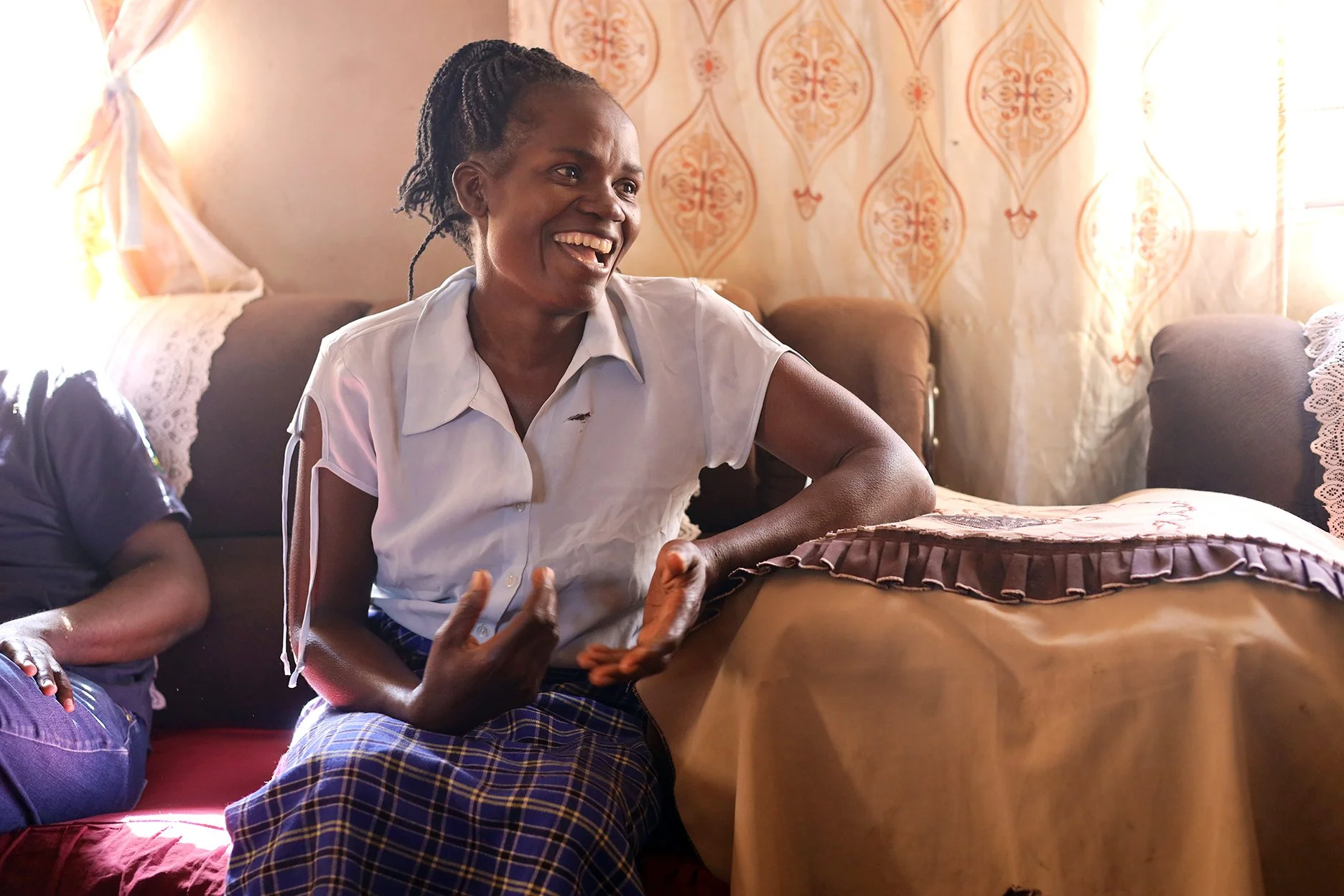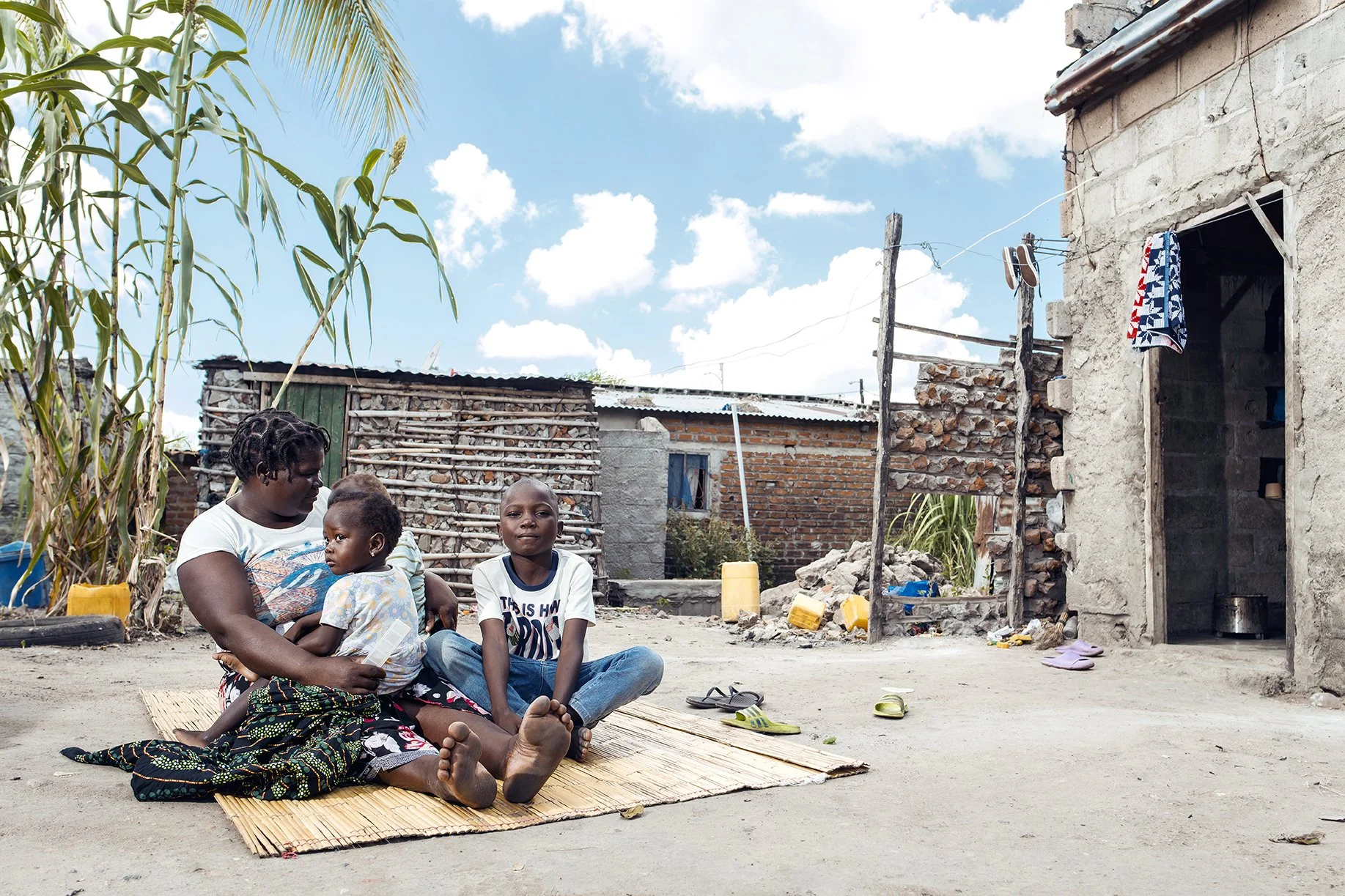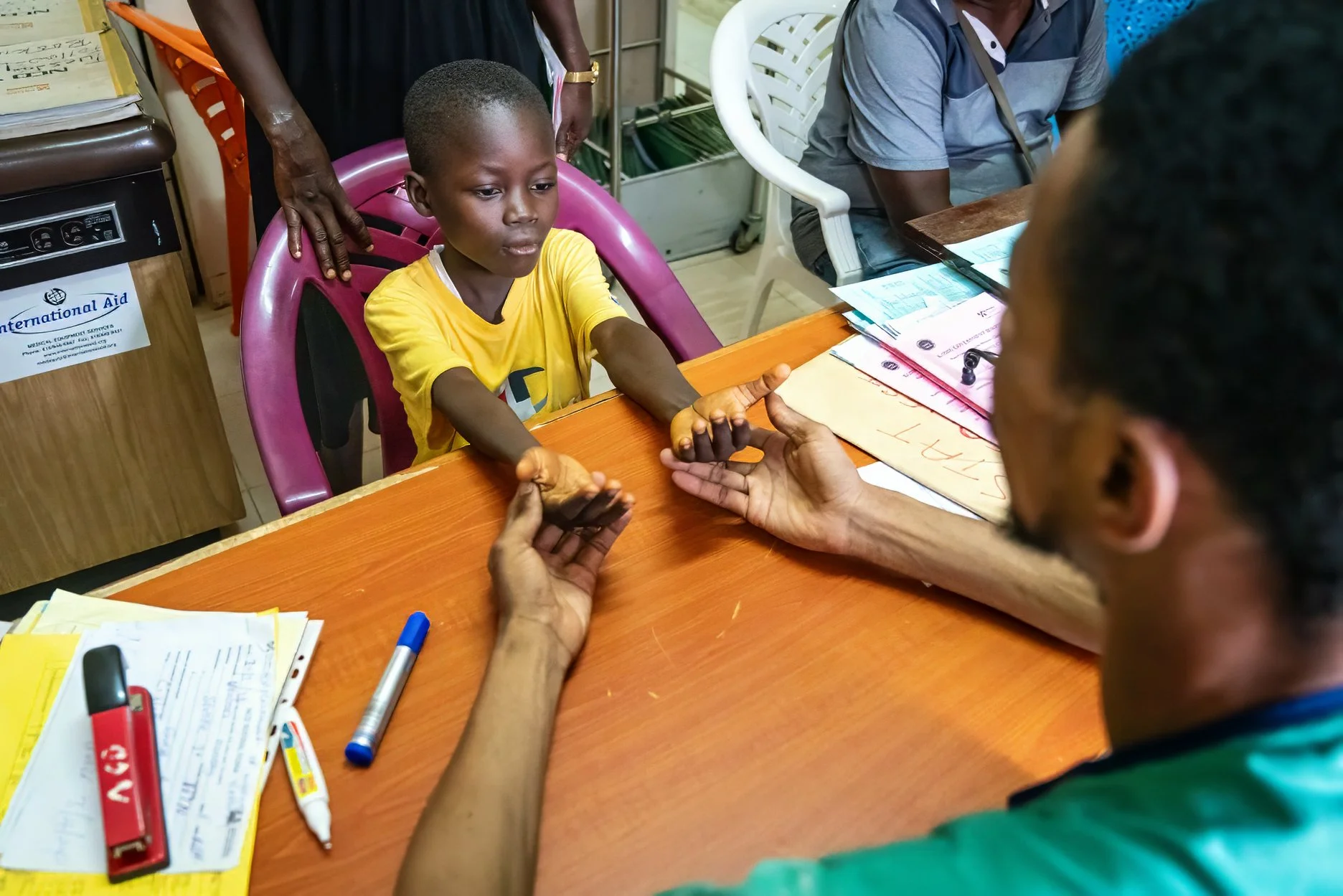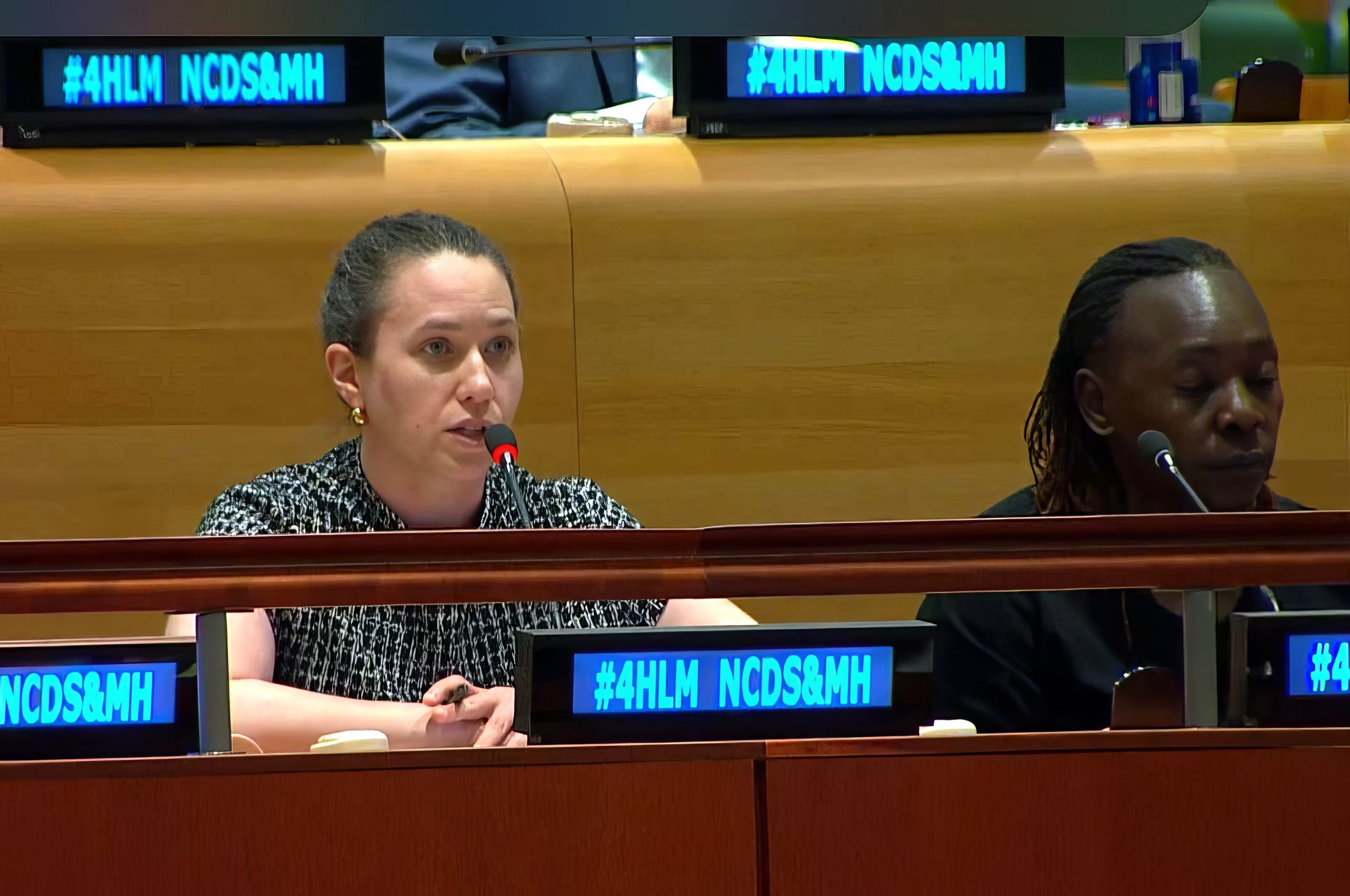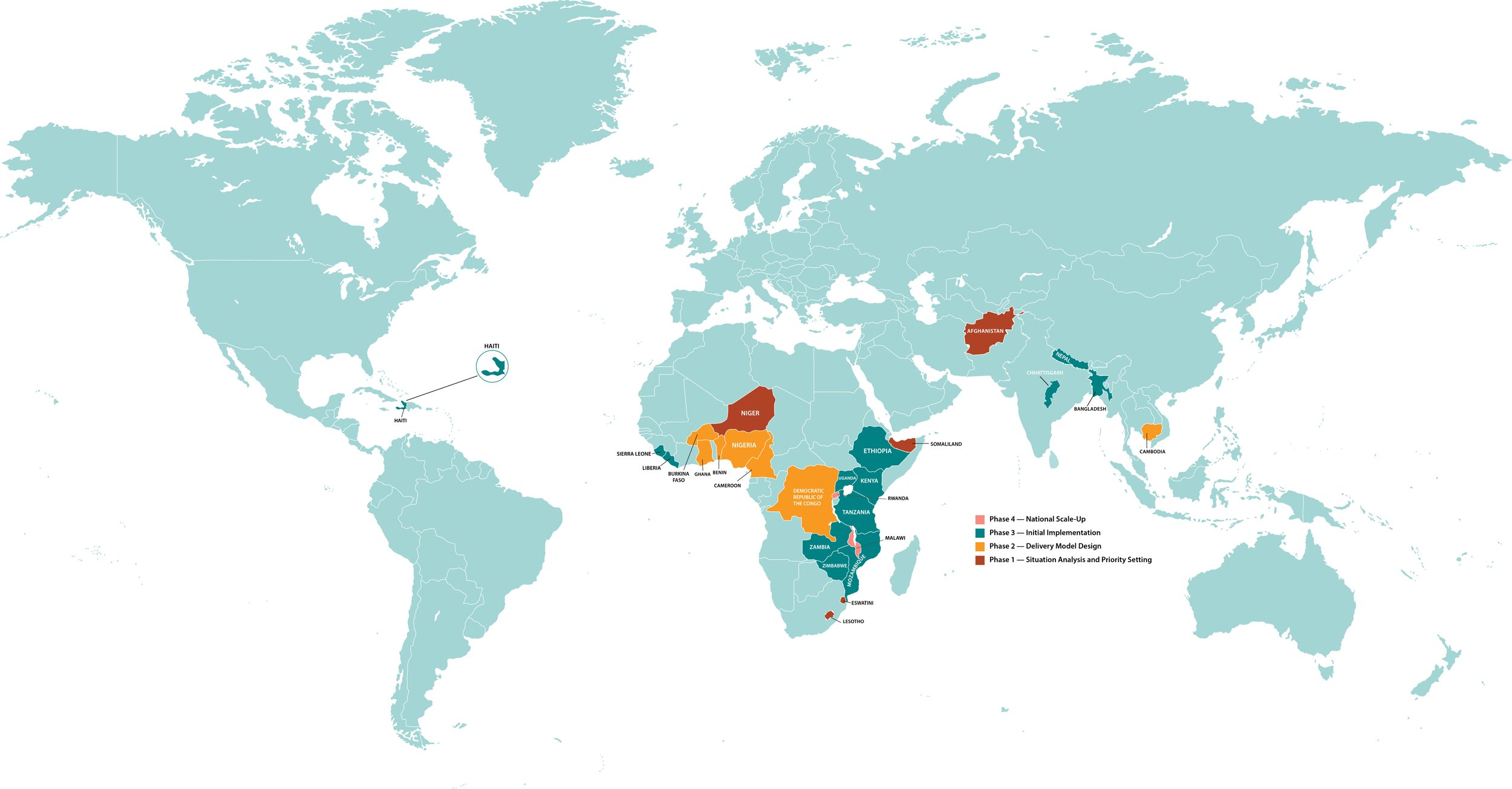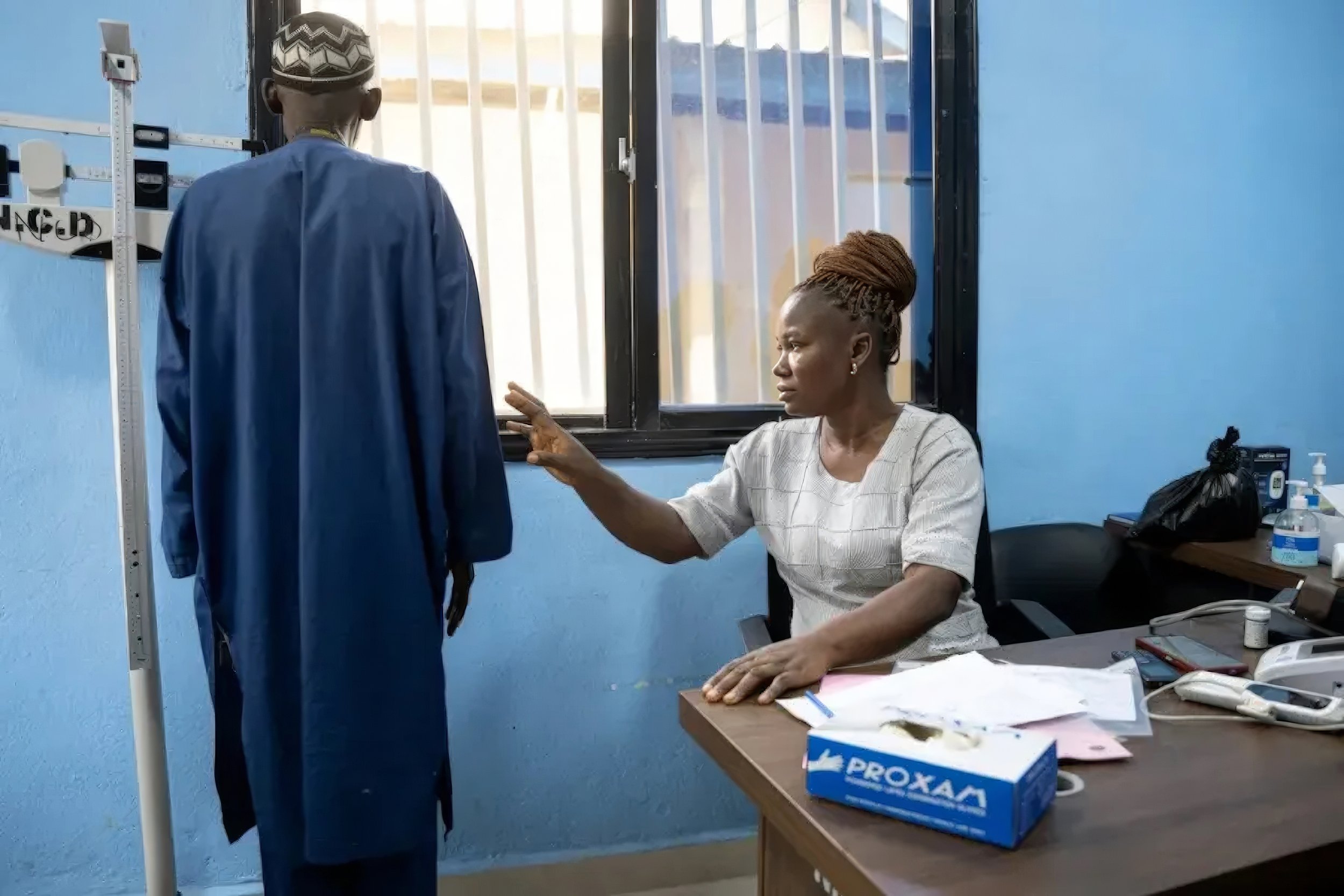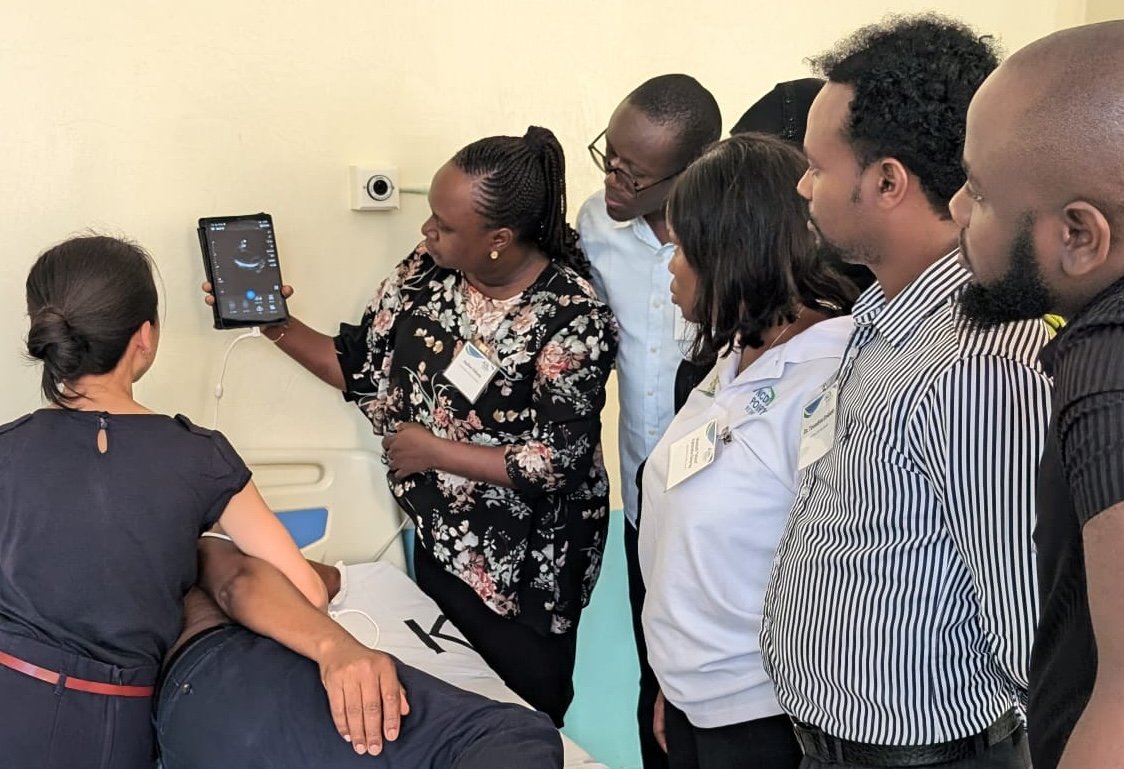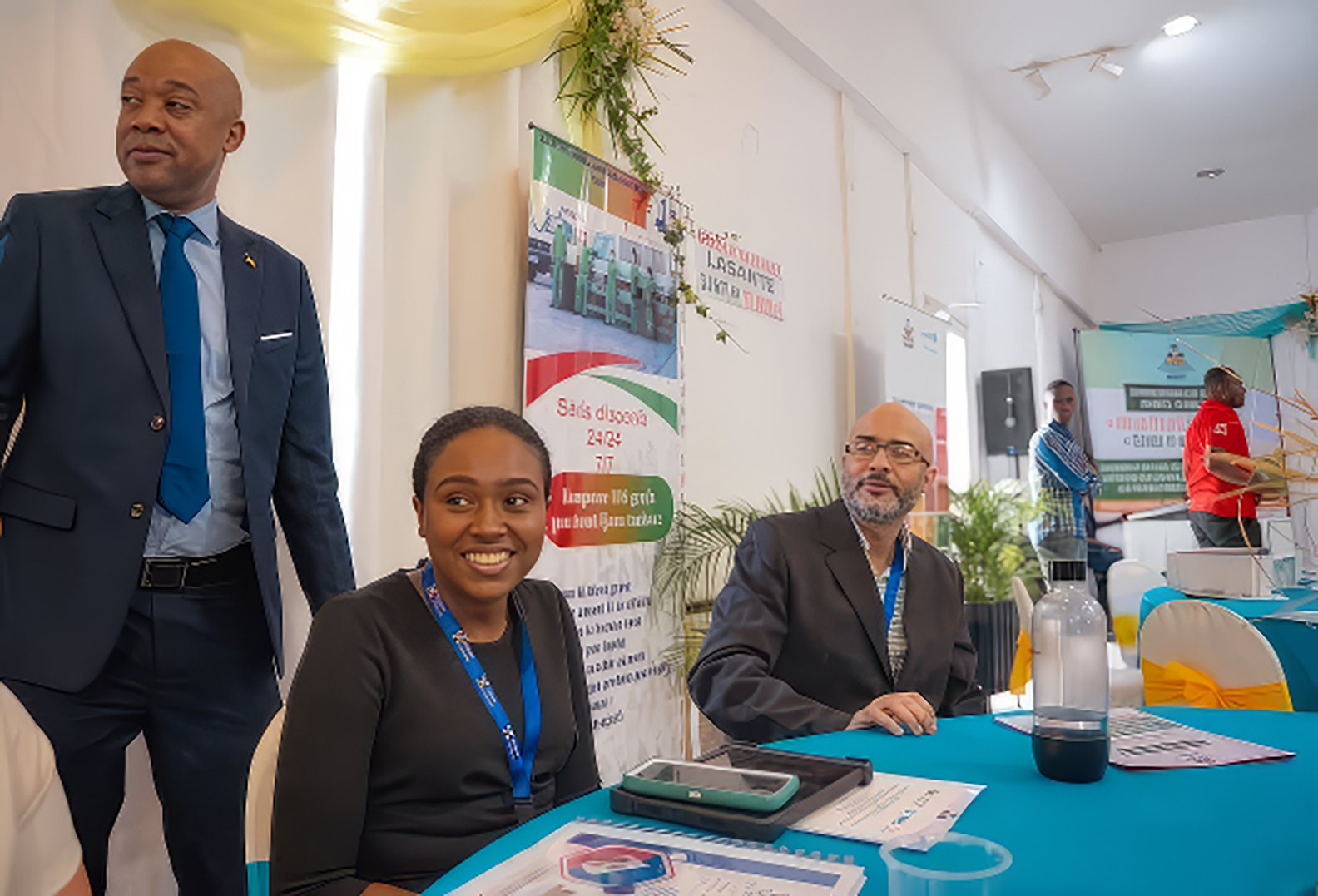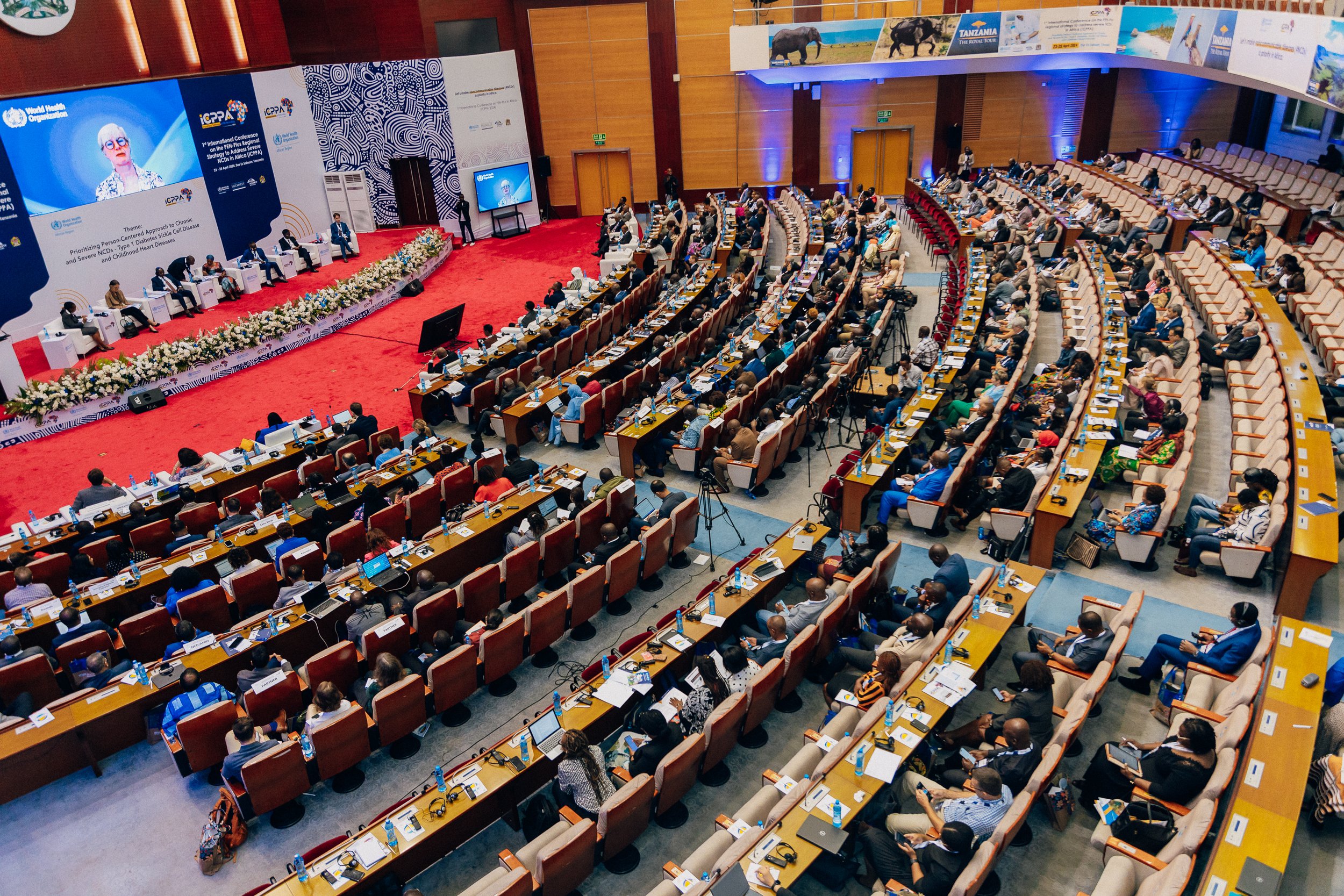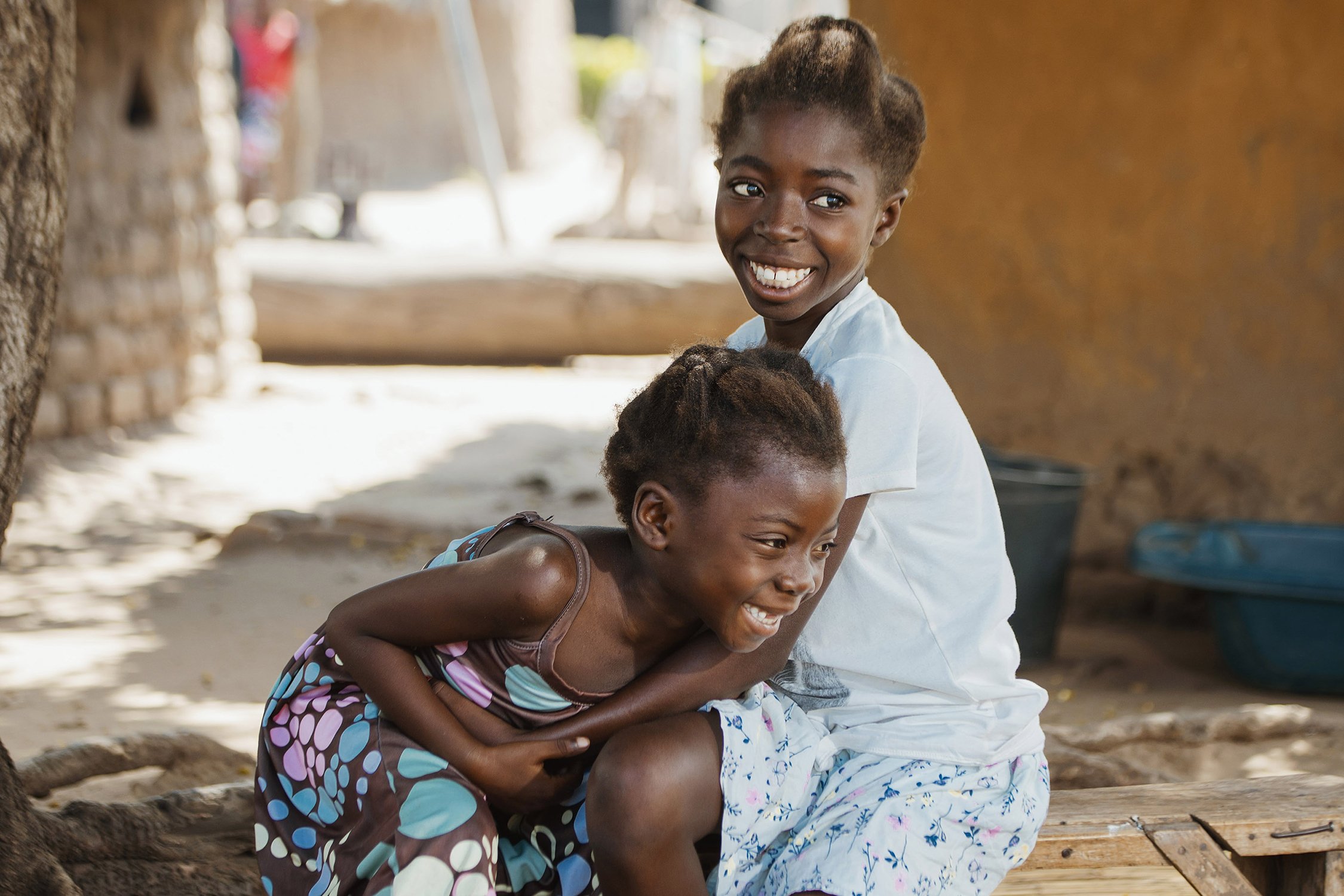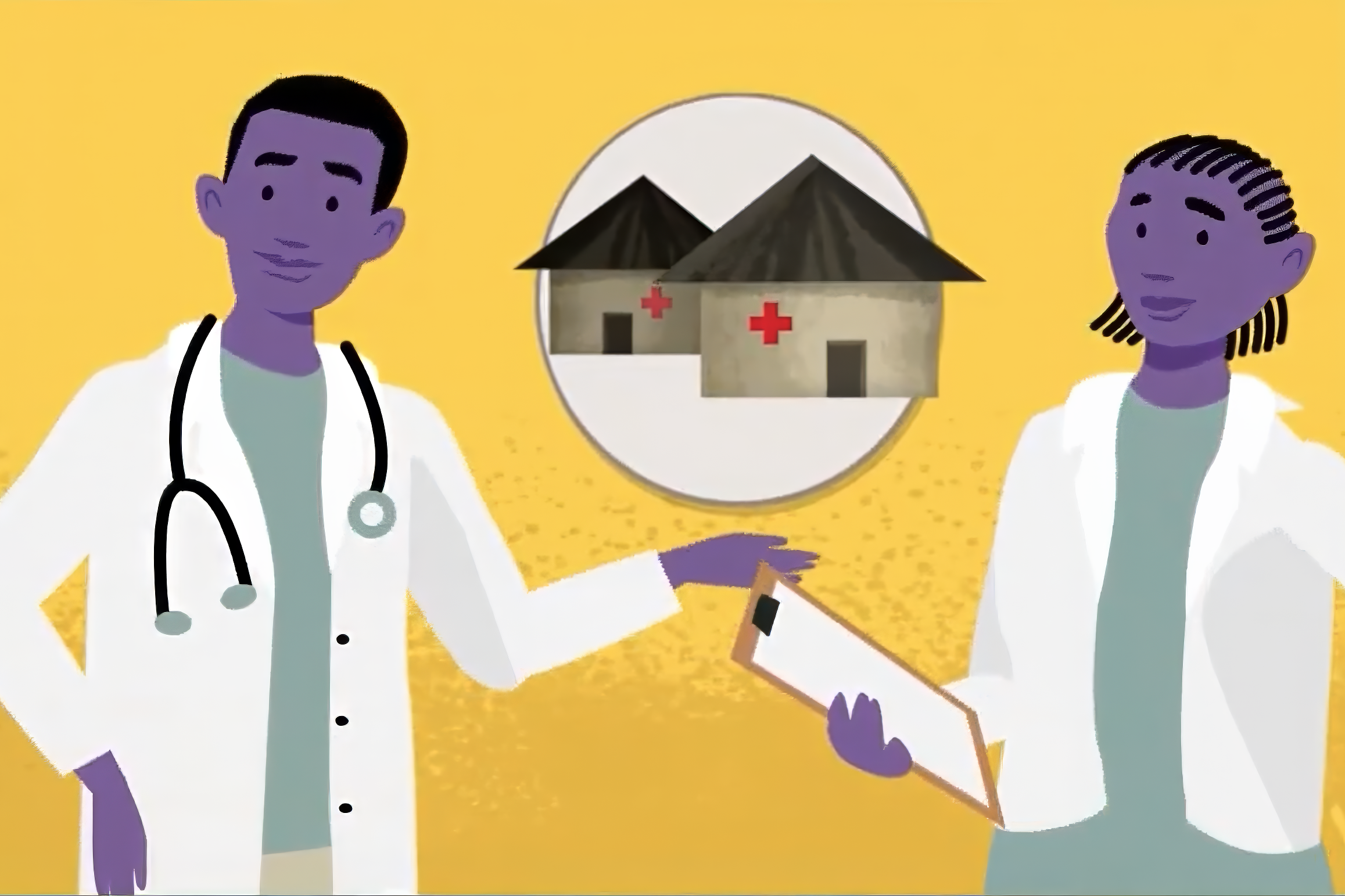Network in Action Briefs
When it comes to advocating for health equity and greater access to care for people living with severe noncommunicable diseases, Emmanuella Selasi Hormenoo doesn’t miss an opportunity. Undaunted by sharing stages with global health leaders, the Voices for PEN-Plus advocate represented people with lived experience on two panels at the World Health Summit in Berlin in mid-October.
The same week that global policy talks on noncommunicable diseases were taking place at the United Nations General Assembly in New York City, health leaders in Abuja, Nigeria, were marking progress in being able to provide care for people living with severe, chronic NCDs through PEN-Plus.
“I am a warrior. I am brave. I am triumphant.” With that mantra, participants in Camp Tuli Bonse—an integrated camp for young people living in Zambia with type 1 diabetes or sickle cell disease—learned how a sense of unity can confer benefits beyond physical health.
Dr. Ana Mocumbi, co-chair of the NCDI Poverty Network, represented PEN-Plus at a high-level side event during the recent 75th session of the WHO Regional Committee for Africa. There delegates emphasized the urgent need for equitable access to prevention, screening, treatment, and rehabilitation across the continuum of care for people living with severe noncommunicable diseases.
Shumirai Magidi, a 48-year-old mother of six who lives in a quiet rural stretch of Chabata Village in the Bikita District of southeastern Zimbabwe, is known for her resilience. Yet that strength was put to the test several years ago, when her health began to fail.
A commentary authored by Network and UNICEF leaders and published in August by The Lancet Child & Adolescent Health makes the case for better care for children and adolescents living with severe, chronic NCDs in settings of extreme poverty, a case that’s also reflected in the Network’s position statement ahead of the United Nations High-Level Meeting on NCDs in September.
Zambia health officials recently opened the country’s fourth and fifth PEN-Plus clinics, marking both occasions within weeks of launching the country’s national operating plan for the care of people living with severe noncommunicable diseases. Both new clinics have received support from the Scottish Government.
In a launch event in late July, the Republic of Somaliland announced a partnership with the NCDI Poverty Network to support people living with severe, chronic noncommunicable diseases through PEN-Plus. In a statement, the Ministry of Health Development of the Republic of Somaliland noted the partnership “marks a significant step forward in strengthening the ministry’s efforts to improve health services, particularly in addressing noncommunicable diseases.”
At the second International Conference for PEN-Plus in Africa, recently held in Abuja, health leaders, policymakers, and development partners across Africa renewed their commitment to an accelerated implementation of the PEN-Plus to significantly expand access to care for people living with severe noncommunicable diseases.
The NCDI Poverty Network recently launched the PEN-Plus Monitoring and Evaluation Toolkit, a comprehensive resource designed to help clinicians, implementers, and planners deliver high-quality care to people living with severe noncommunicable diseases in resource-limited settings.
The second International Conference on PEN-Plus in Africa positioned Nigeria as a leading advocate for PEN-Plus across the African continent, media coverage of the July conference showed.
Zambia health officials recently took a significant step forward in PEN-Plus implementation with the launch of a national operational plan to support and expand care for people living with severe, chronic noncommunicable diseases. The Centre for Infectious Disease Research in Zambia, or CIDRZ, a PEN-Plus implementing partner working with the NCDI Poverty Network, hosted a launch event in Lusaka.
Camp Tuli Bonse, an integrated summer camp, will bring together about 60 children, adolescents, and young adults living with either type 1 diabetes or sickle cell disease for a week of health education, support, solidarity, and fun in Chongwe, Zambia, from August 18 to 22.
The second International Conference on PEN-Plus in Africa (ICPPA 2025) will convene on July 8–10 in Abuja, Nigeria, with virtual participation available to healthcare professionals, researchers, and policymakers worldwide.
The NCDI Poverty Network’s second study in a trio assessing 16 health facilities across nine countries in 2022–23, before PEN-Plus implementation, focuses on how providers deliver care, from screening and diagnosis through treatment and long-term support.
A peer education event in May brought clinicians and community advocates from Liberia, Sierra Leone, and Uganda together for training on type 1 diabetes management and symptoms, leadership, and…building towers out of spaghetti.
Dr. Ana Mocumbi, co-chair of the NCDI Poverty Network, recently received the Republic of Mozambique’s Medal of Merit for Science and Technology. The honor recognizes her outstanding contributions to science, technology, and innovation in Mozambique.
Health officials from several French-speaking countries in western and central Africa have begun meeting in a new webinar series to share—in French—their challenges and successes in expanding care for people living with severe noncommunicable diseases. The new series solidifies a groundbreaking collaboration that began with a February study tour in Sierra Leone.
On behalf of the NCDI Poverty Network, Rachel Gasana, senior director of advancement, testified at the multistakeholder hearing on noncommunicable diseases, held at the United Nations Headquarters in New York City. The Network was one of 70 organizations selected to deliver testimonies as a prelude to the United Nations High-Level Meeting on NCDs in September.
In just the past several months, the NCDI Poverty Network has grown from 23 partner countries to 27, with the most recent additions being Eswatini, Lesotho, Niger, and Somaliland.
An audience of patients, clinicians, Ministry of Health officials, and community members recently gathered to celebrate a historic milestone for Sierra Leone: the launch of a purpose-built PEN-Plus clinic at Koidu Government Hospital. Partners In Health, the implementing partner for PEN-Plus in Koidu, has published an account of the clinic’s services.
A newly published study found that only two of 16 health facilities assessed in nine lower-income countries had all the functional equipment needed to diagnose and manage care for people living with type 1 diabetes. Two of the facilities had none of the necessary equipment.
A recent intensive teaching course aimed to turn care providers already proficient in echocardiography into master trainers. Held in Kenya, the weeklong session included care providers from five countries.
More than 150 people recently gathered in Port-au-Prince for the formal launch of Haiti’s NCDI Poverty Commission report on noncommunicable diseases, injuries, and poverty. The updated and expanded report, which Commission members began drafting in 2019, represents the country’s commitment to health equity despite ongoing national challenges.
The NCDI Poverty Network has submitted proposals to the World Health Organization suggesting it add analogue insulins and a triple fixed-dose antihypertensive medicine combination to its Model List of Essential Medicines. The Network has also proposed that WHO reclassify hemoglobinopathies to shine more of a spotlight on sickle cell disease and thalassemias.
The WHO Regional Office for Africa recently published a landmark report that details the impact and momentum of the PEN-Plus model, providing a valuable tool for advocacy and information about integrated care for people living with severe, chronic noncommunicable diseases.
The NCDI Poverty Network recently expanded its social media presence to use the rising popularity of Facebook in Africa to good advantage—and to provide additional platforms for its advocacy work in ensuring that children, adolescents, and adults living with severe noncommunicable diseases in low-income countries have access to the lifesaving services they need.
Zimbabwe recently finalized its national operational plan for PEN-Plus, becoming the first country to do so among the dozen nations that began implementing PEN-Plus in 2022–23. “This plan shows the great commitment of Zimbabwe’s Ministry of Health and its supporting partners to take the lessons learned from its initial experience with PEN-Plus to the next level,” said Dr. Neil Gupta, senior director of policy for the NCDI Poverty Network.
The NCDI Poverty Network recently published a position statement that identifies the crucial pieces—and populations—missing from the global NCD agenda. With this statement, the Network seeks to inform policy discussions in the lead-up to the Fourth United Nations High-Level Meeting on the Prevention and Control of Noncommunicable Diseases, slated for September.
Although the central concept behind PEN-Plus is relatively simple, it can be challenging to explain the model simply. Fortunately, the World Health Organization’s Regional Office for Africa recently shared an updated version of its animated explainer video on PEN-Plus.





